RESEARCH
Community Comes Together to Celebrate 10th Anniversary of HA’s Research Initiative
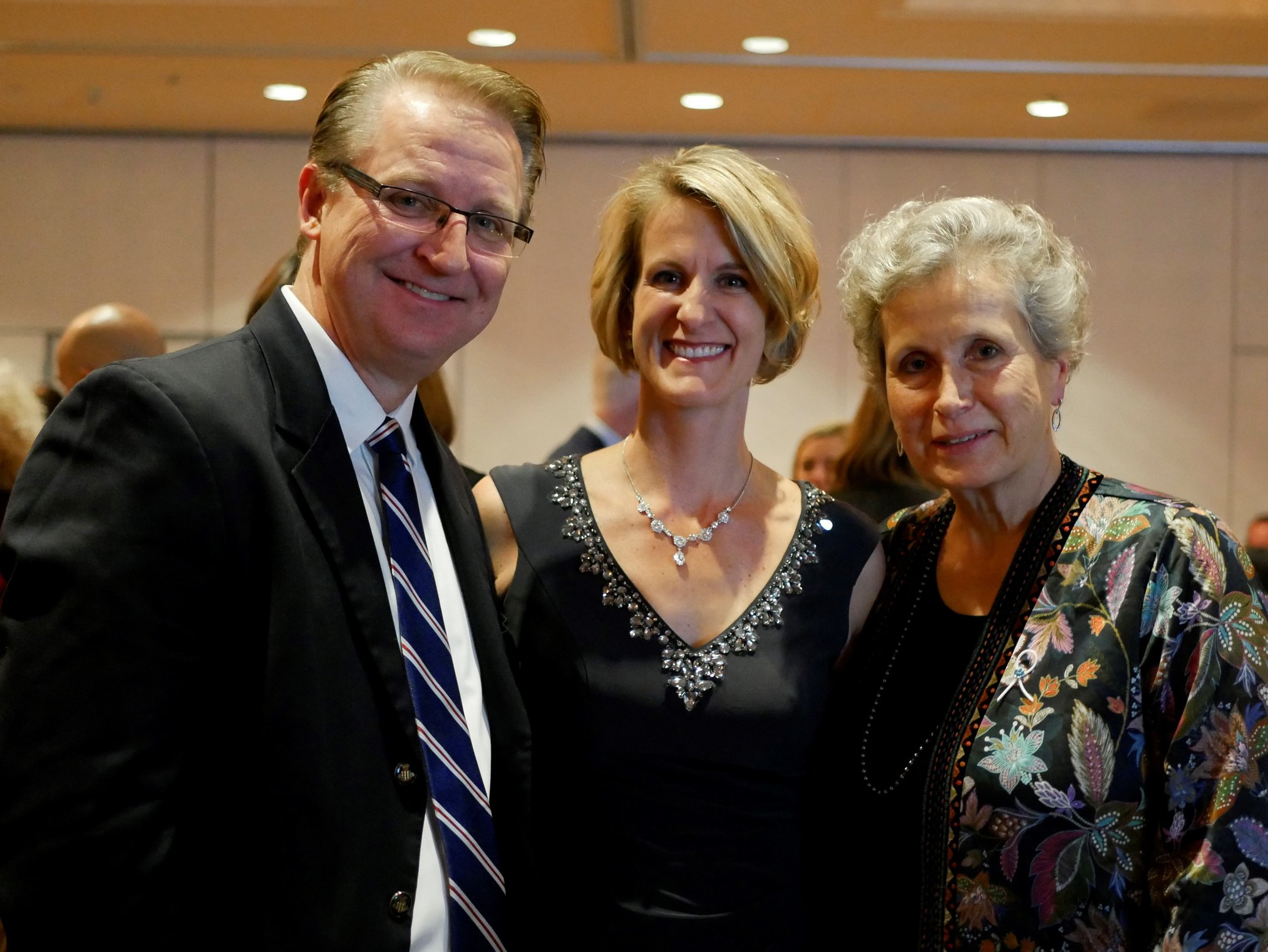
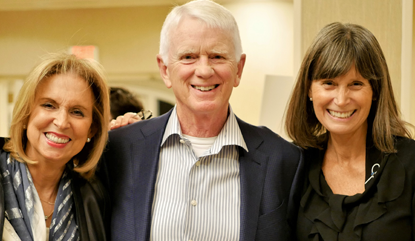
Families and researchers from across the country came together on Nov. 3 in St. Louis, MO to celebrate the 10th Anniversary of HA’s Research Initiative. The event highlighted the successes of our research investments and honored the trailblazers who started it all.
“Since the start of our research initiative in 2009, we have worked diligently to build a comprehensive research program. Today, our program spans basic, translational, and clinical research and funds efforts to find a cure and improve the lives of those living with the condition, from the smallest preemies to seniors with Normal Pressure Hydrocephalus,” said Diana Gray, HA’s President and CEO, as she welcomed guests.
At the event, Paul Gross, past HA Board Chair and co-founder of the Hydrocephalus Clinical Research Network (HCRN) and the Adult Hydrocephalus Clinical Research Network (AHCRN), was presented with a Visionary Leader Award for his efforts to help launch and shape HA’s Research Initiative. He shared stories of how HA’s research ecosystem began and highlighted the individuals who helped make it successful.
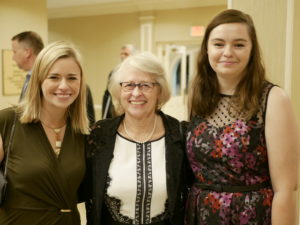 Dr. Carolyn Harris, PhD, from Wayne State University, was honored with a Research Innovation Award. Dr. Harris, the recipient of HA’s 2018 Innovator Award, is testing a new shunt coating that stops cells from attaching to the shunt. Her goal is to create a shunt catheter that does not block, which would be a game changer for hydrocephalus patients.
Dr. Carolyn Harris, PhD, from Wayne State University, was honored with a Research Innovation Award. Dr. Harris, the recipient of HA’s 2018 Innovator Award, is testing a new shunt coating that stops cells from attaching to the shunt. Her goal is to create a shunt catheter that does not block, which would be a game changer for hydrocephalus patients.
Dr. David Limbrick, MD, PhD, with St. Louis Children’s Hospital and Washington University School of Medicine, gave the keynote address about what the future holds for hydrocephalus research. He urged the audience to believe that it is possible to find ways to prevent and cure hydrocephalus.
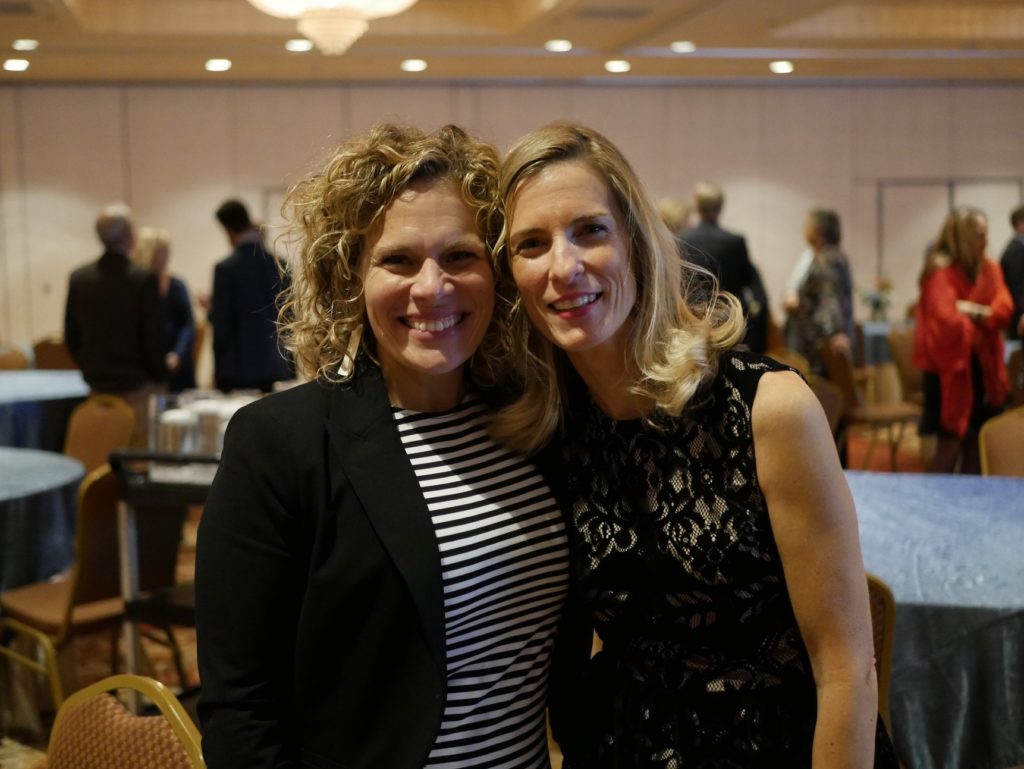
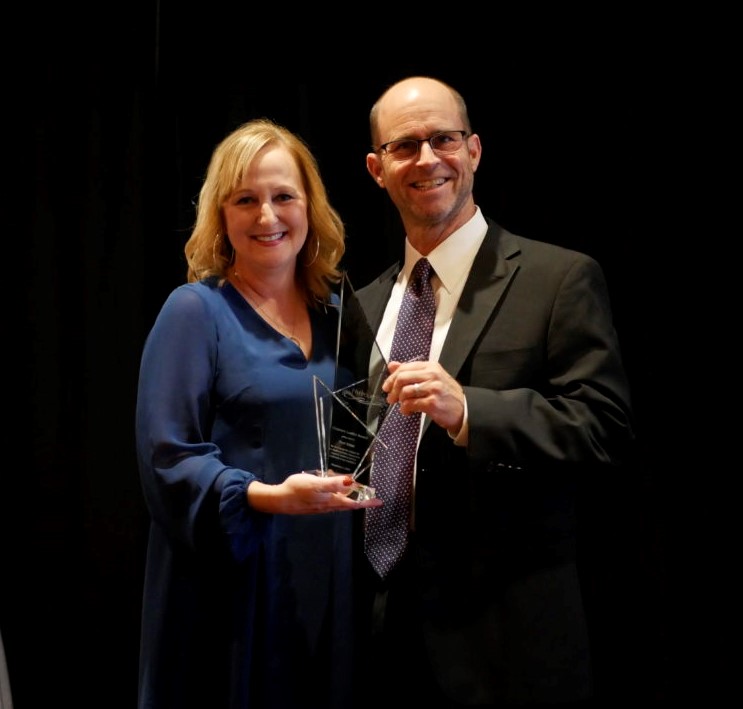
“It's doable through team-based science and really probing these common pathways, enabling us to make transformative advances towards precision medicine for hydrocephalus…the need is urgent and significant and they're counting on us,” he said.
HA Board Chair Brett Weitz presented Stephanie Buffa Vogt with a 2019 Vicki Brown Volunteer of the Year Award. Stephanie has been living with hydrocephalus since she was 6 weeks old. She has attended almost every Hydrocephalus Association conference over the past 20 years and is a longtime HA peer support volunteer. She has been chair and co-chair of the St. Louis WALK to End Hydrocephalus since 2008, which has raised over $500,000 for HA’s support, education and research programs.
"Thank you to all the scientists, all the doctors and everyone at the Hydrocephalus Association who works tirelessly to make sure that we figure out a cure for hydrocephalus,” Stephanie said.

BE INSPIRED
Leslys Vedder
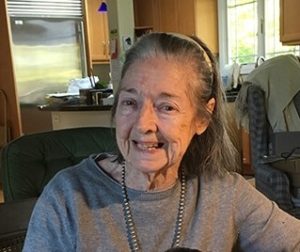 Since 2016, Leslys Vedder has been on a mission to help fund research on Normal Pressure Hydrocephalus (NPH) and traumatic brain injury. Thanks to a very generous challenge grant Leslys provides, hundreds of families have been inspired to give, resulting in nearly $400,000 raised to support critical programs of the Adult Hydrocephalus Clinical Research Network and grants to scientists. Her gifts are made in tribute to her late husband James Forrest Vedder, PhD, a scholar, physicist, archaeologist and philanthropist, who was diagnosed with NPH. We are extremely grateful for donors like Leslys who are eager to help advance the work of HA.
Since 2016, Leslys Vedder has been on a mission to help fund research on Normal Pressure Hydrocephalus (NPH) and traumatic brain injury. Thanks to a very generous challenge grant Leslys provides, hundreds of families have been inspired to give, resulting in nearly $400,000 raised to support critical programs of the Adult Hydrocephalus Clinical Research Network and grants to scientists. Her gifts are made in tribute to her late husband James Forrest Vedder, PhD, a scholar, physicist, archaeologist and philanthropist, who was diagnosed with NPH. We are extremely grateful for donors like Leslys who are eager to help advance the work of HA.
Leslys Vedder
“When Jim was diagnosed, I read all I could about the brain and hydrocephalus. He was the love of my life and I desperately needed answers. I learned about the work of the Hydrocephalus Association and became involved. When my husband passed, I decided to issue challenge grants to inspire other members to help support research on hydrocephalus impacting adults. I am delighted that these grants have encouraged the support of many other families to give and move HA one step closer to finding better treatments and a cure.”
Four Scientists Awarded HA Grants for Bold and Innovative Work
There is a lot we do not know about how hydrocephalus develops and how to best treat the condition across our many communities. Our 2019 Innovator Award recipients are trying to change that by exploring new ideas about why hydrocephalus develops and testing new treatments to improve long term outcomes.
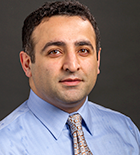
Dr. Engin Deniz, Assistant Professor in the Division of Critical Care Medicine at Yale University, will determine how cilia, small hair like structures that move cerebrospinal fluid (CSF), contribute to post-traumatic hydrocephalus. This study will use an innovative tadpole model that allows the entire CSF system to be imaged in a living animal.

Dr. Joel Geerling, Assistant Professor at the Carver College of Medicine at the University of Iowa, will focus on linking changes in the brain with symptoms experienced by those with Normal Pressure Hydrocephalus (NPH). The goal is to better understand the neural networks affected by NPH in order to develop symptom-specific treatments.
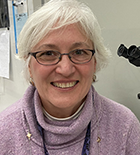
Dr. Bernadette Holdener, Associate Professor in the department of Biochemistry and Cell Biology at Stony Brook University, will work on understanding how changes in the way the brain produces and uses energy are related to the development of hydrocephalus in both children and adults.
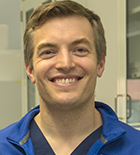
Dr. Brandon A. Miller, Assistant Professor in the division of Neurosurgery at the University of Kentucky, will conduct preclinical tests of an antioxidant drug therapy that could reduce nerve injury caused by a brain bleed. The drug is already FDA approved for other uses and could improve brain function for premature babies who are at risk of developing posthemorrhagic hydrocephalus.
The Innovator Award is designed to provide seed funding for bold and innovative research with the potential to transform hydrocephalus research. Emphasis is placed on innovation and potential impact of the project on hydrocephalus research and clinical outcomes. Innovator Awards are for one year of support at a $25,000 or $50,000 level. These awards further the Hydrocephalus Association mission to promote a cure for hydrocephalus and improve the lives of those affected by the condition.
Funding for the 2019 Innovator Awards was made possible through the support of the Posthemorrhagic Hydrocephalus Campaign and individual donations.
Research Workshop Hosts Scientists from Around the World
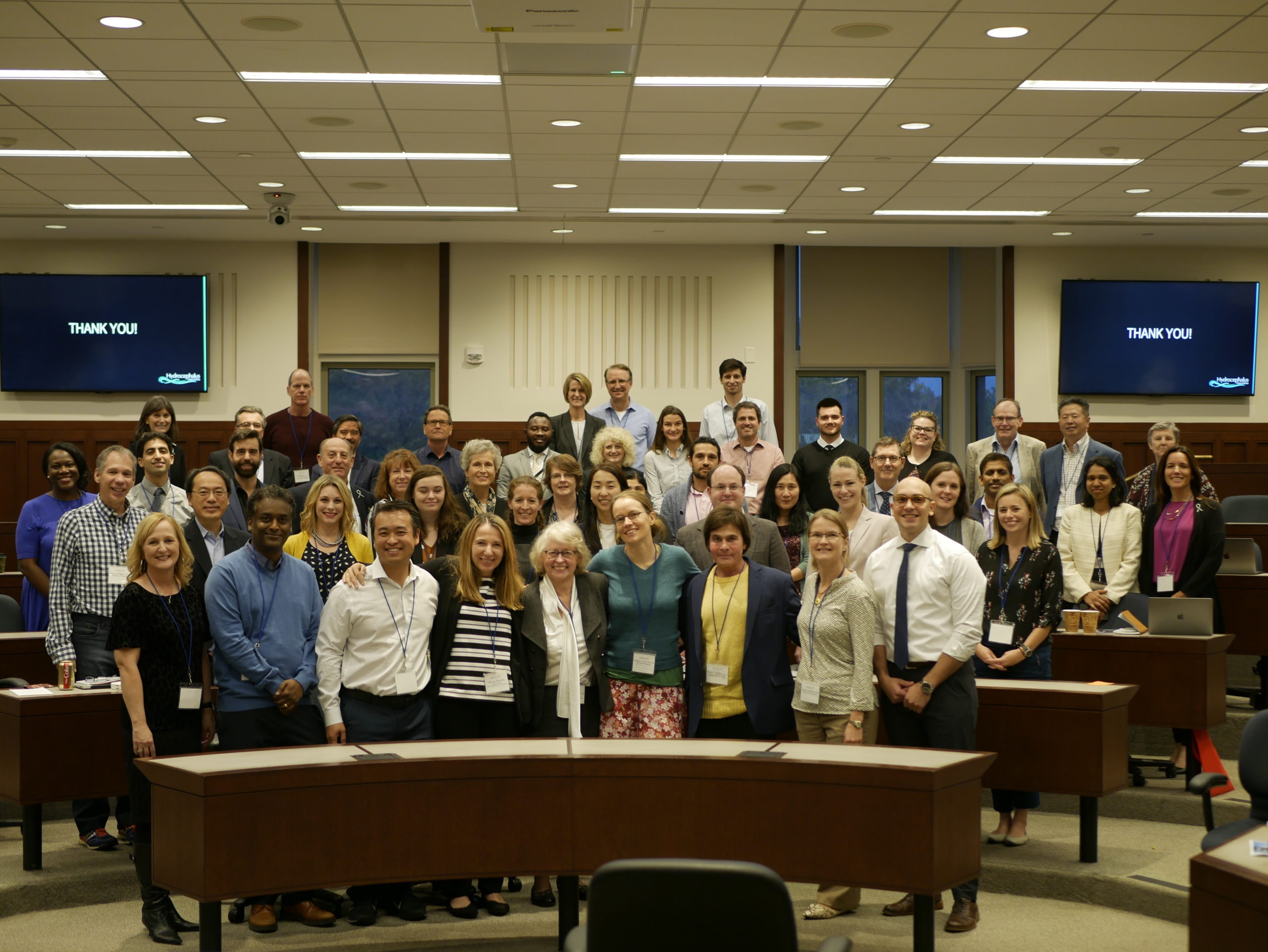
In November 2019, scientists from across the United States, and five countries, convened at Washington University in St. Louis for the Hydrocephalus Association’s Driving Common Pathways Workshop.
The workshop delved deeper into the research around posthemorrhagic hydrocephalus (PHH) and explored the overlap between the mechanisms implicated in PHH and other forms of hydrocephalus.
The event featured 23 presentations and panel discussions with scientists from various disciplines. Topics covered included the role of the choroid plexus in the development of hydrocephalus, the role of cilia, brain development and microglia, the role of ependyma, and opportunities in cell therapies. Researchers came from as far as Norway and Greece to participate in the workshop.
“The goal of the two-day workshop was to explore and debate the potential of new therapies that could improve outcomes for hydrocephalus patients,” explained Diana Gray, HA President and CEO. “We were excited to see a lot of active discussion among the scientists, and the workshop has resulted in many exciting new research collaborations.”
The workshop was funded through a $3 million Vision Dinner PHH Campaign led by Vicki and Craig Brown, longtime HA benefactors.

